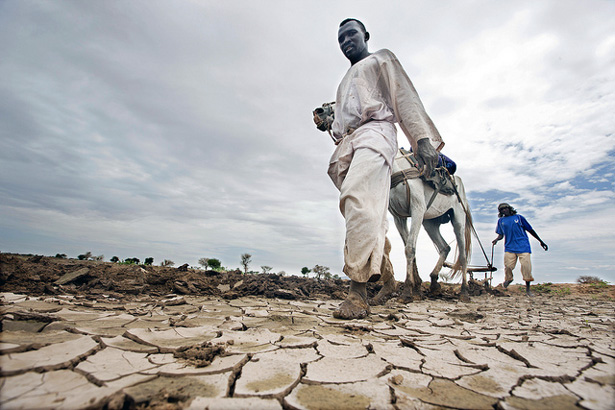Climate change a threat to human lives, a call to action
The impacts of climate change on Uganda are multi-faceted and pose significant challenges to its population, economy, and overall well-being.

By Patience Katusiime
Uganda, located in East Africa, is known for its diverse ecosystems, rich biodiversity, and agricultural productivity. However, this beautiful country and its people are increasingly facing adverse effects of climate change.
The impacts of climate change on Uganda are multi-faceted and pose significant challenges to its population, economy, and overall well-being.
Climate change has emerged as one of the greatest challenges of our time, affecting various aspects of life on Earth. While its consequences are felt globally, developing countries such as Uganda are disproportionately affected.
Agriculture is the backbone of Uganda’s economy, providing livelihoods for the majority of its population. However, climate change poses significant threats to agricultural productivity.
Changing rainfall patterns, prolonged droughts, and unpredictable weather events have resulted in reduced crop yields, increased pests and diseases, and decreased availability of water for irrigation.
This has led to food shortages, malnutrition, and increased vulnerability to hunger among the people of Uganda.
Climate change has disrupted water availability and quality in Uganda. Rising temperatures have caused the melting of glaciers and reduced the flow of rivers, affecting the water supply for both domestic and agricultural use.
Additionally, extreme weather events such as floods and landslides contaminate water sources, leading to the spread of waterborne diseases.
The scarcity of clean water exacerbates health issues, particularly in rural areas, where access to safe drinking water and sanitation facilities is already limited.
Climate change influences the prevalence and distribution of diseases in Uganda. Rising temperatures and altered rainfall patterns create favorable conditions for the spread of vector-borne diseases such as malaria, dengue fever, and cholera.
Increased temperatures also contribute to the expansion of suitable habitats for disease-carrying insects, putting communities at greater risk.
Additionally, climate-related disasters like floods and droughts can lead to population displacement, overcrowded living conditions, and inadequate sanitation, further facilitating the transmission of diseases.
Uganda is renowned for its rich biodiversity and unique ecosystems, including the renowned Rwenzori Mountains and the diverse wildlife in national parks.
However, climate change threatens these ecosystems and the species they support. Rising temperatures, deforestation, and habitat destruction disrupt delicate ecological balances, leading to the loss of plant and animal species. This loss not only impacts biodiversity but also affects tourism, a vital source of revenue for Uganda.
The consequences of climate change in Uganda have wide-ranging socioeconomic impacts. The agricultural losses, water scarcity, and health challenges undermine livelihoods, exacerbate poverty, and contribute to economic instability.
Moreover, climate-induced disasters often result in the destruction of infrastructure, such as roads, schools, and hospitals, hindering development efforts and increasing the cost of recovery.
Uganda, like many other developing countries, bears a disproportionate burden when it comes to the impacts of climate change. The vulnerability of its people to agricultural disruptions, water scarcity, health risks, and the loss of biodiversity cannot be overstated.
Urgent action is needed to mitigate the effects of climate change in Uganda, including implementing adaptation strategies, investing in resilient infrastructure, promoting sustainable agriculture, and fostering international cooperation to reduce greenhouse gas emissions.
By addressing the impacts of climate change, we can help safeguard the well-being and future of the people of Uganda and create a more sustainable world for all.
Patience Katusiime is the program assistant at Environment Governance Institute Uganda
Email: pkatusiime1@gmail.com






